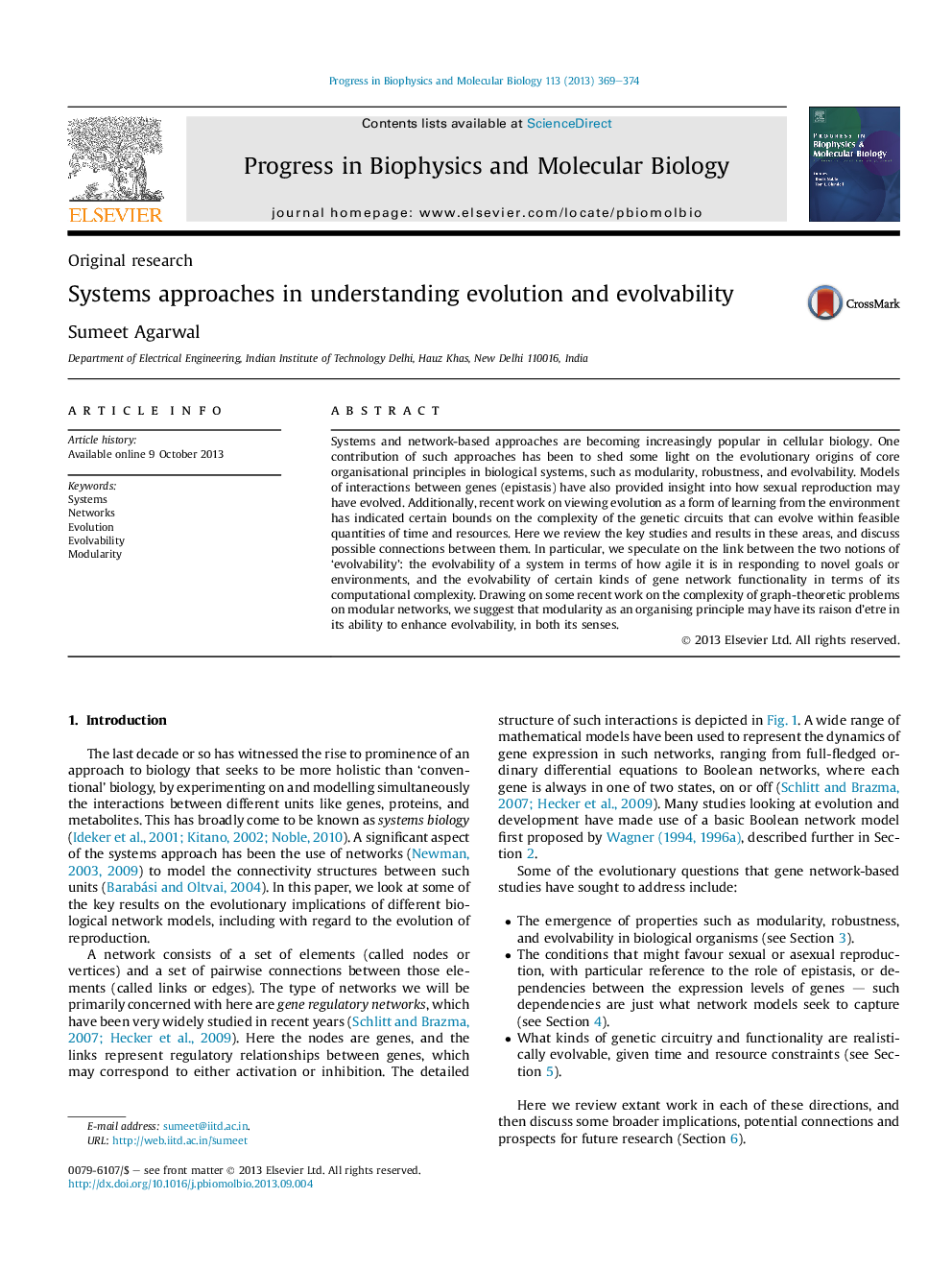| Article ID | Journal | Published Year | Pages | File Type |
|---|---|---|---|---|
| 2070020 | Progress in Biophysics and Molecular Biology | 2013 | 6 Pages |
Systems and network-based approaches are becoming increasingly popular in cellular biology. One contribution of such approaches has been to shed some light on the evolutionary origins of core organisational principles in biological systems, such as modularity, robustness, and evolvability. Models of interactions between genes (epistasis) have also provided insight into how sexual reproduction may have evolved. Additionally, recent work on viewing evolution as a form of learning from the environment has indicated certain bounds on the complexity of the genetic circuits that can evolve within feasible quantities of time and resources. Here we review the key studies and results in these areas, and discuss possible connections between them. In particular, we speculate on the link between the two notions of ‘evolvability’: the evolvability of a system in terms of how agile it is in responding to novel goals or environments, and the evolvability of certain kinds of gene network functionality in terms of its computational complexity. Drawing on some recent work on the complexity of graph-theoretic problems on modular networks, we suggest that modularity as an organising principle may have its raison d'etre in its ability to enhance evolvability, in both its senses.
